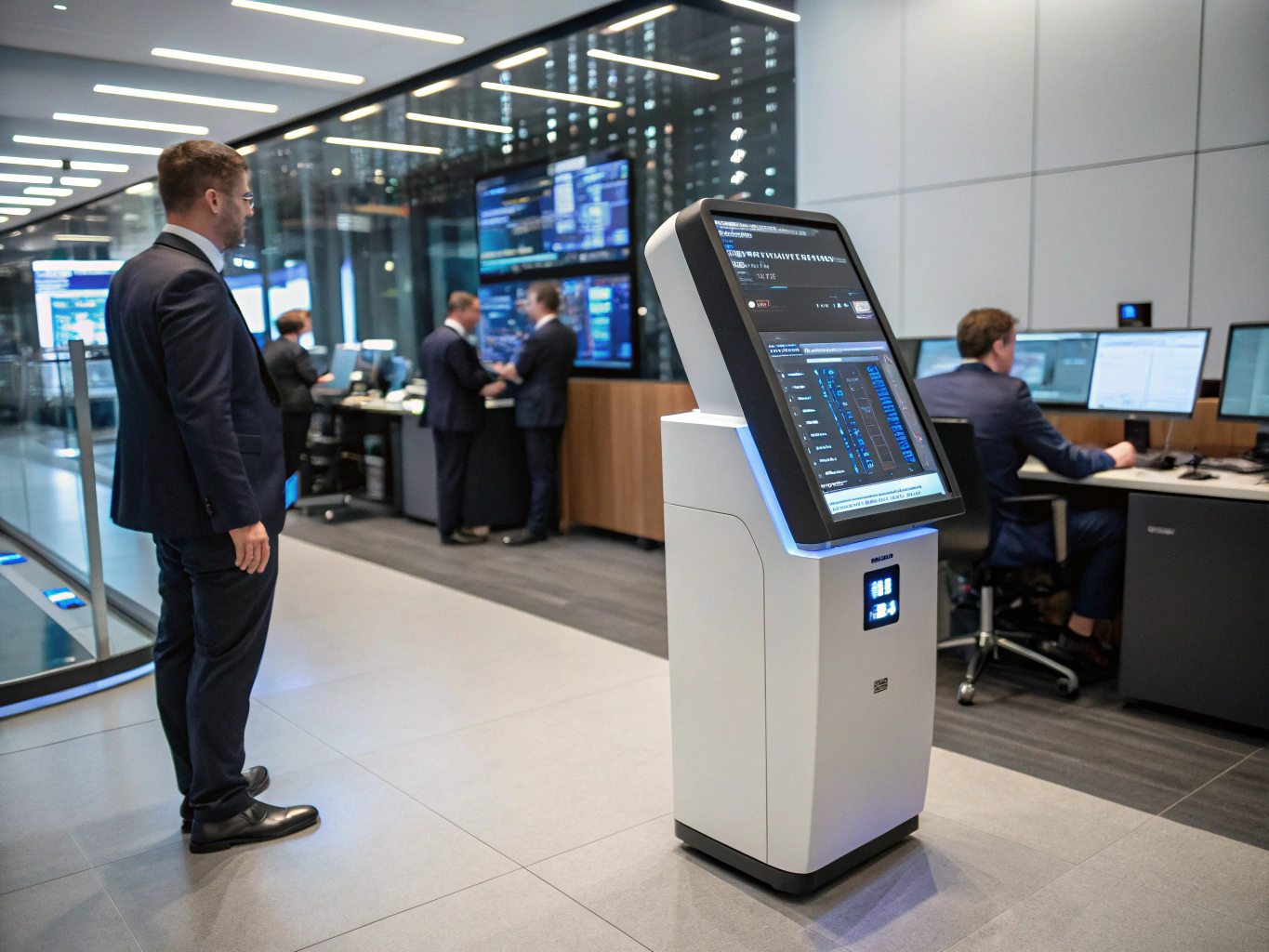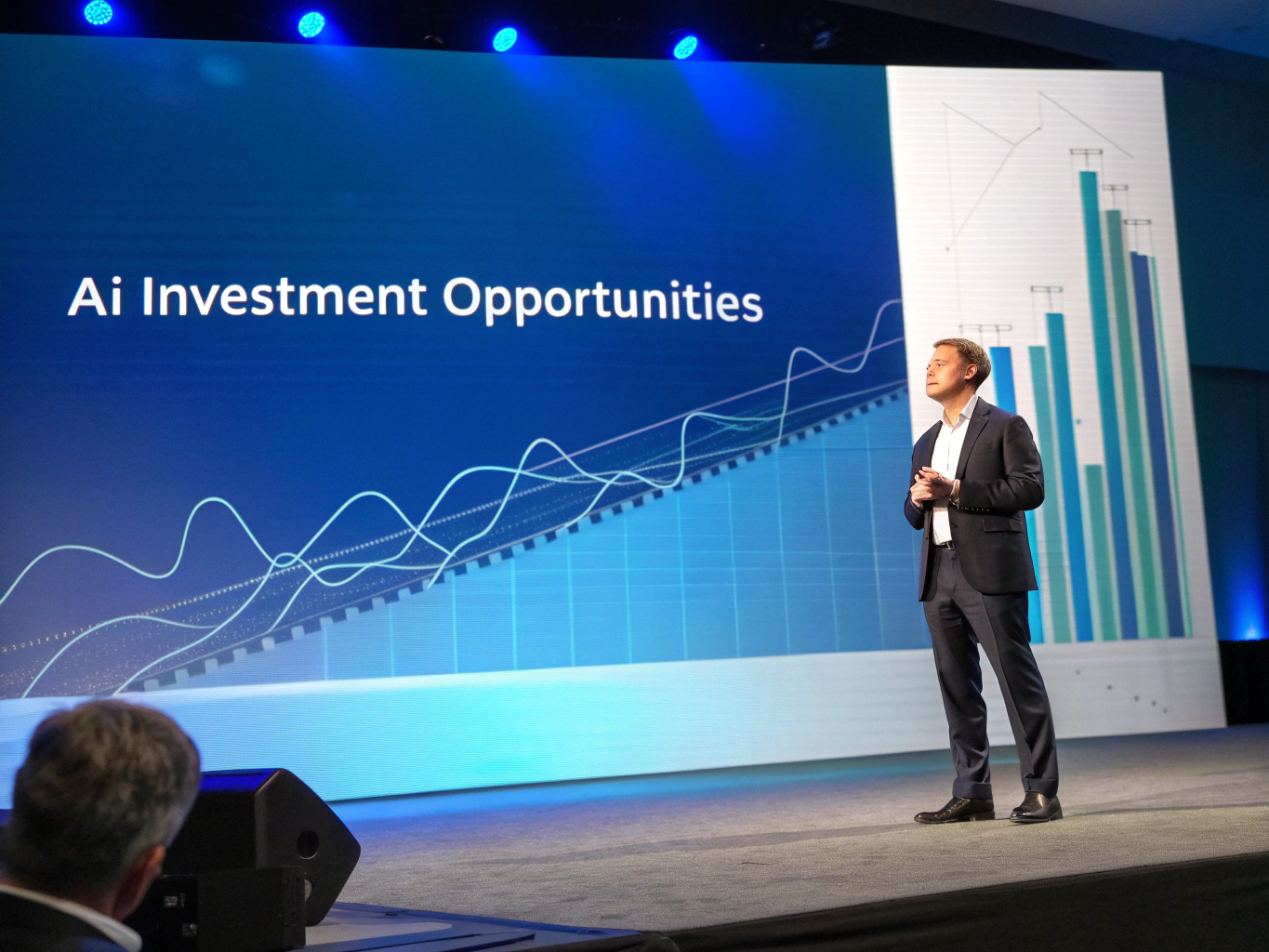How AI is Disrupting Traditional Finance: The Rise of Algorithmic Investment Platforms
, and put the image as an inline element.
Can Artificial Intelligence Truly Revolutionize Your Financial Future?
The financial services industry is undergoing a seismic shift, driven by the rapid advancement of technology. But is the hype around AI in FinTech justified? A recent McKinsey report estimates that AI could contribute $2.7 trillion to the global economy by 2030, with a significant portion of that impact being felt within financial services. This isn't just about fancy algorithms; it's fundamentally changing how we manage money, make investments, and access financial services. From fraud detection to personalized financial advice, AI in FinTech is rapidly becoming indispensable. This post delves into the core of this transformation, examining key concepts, market trends, and practical applications. AI in FinTech

Key Concepts & Trends in AI-Powered Finance
At its core, AI in FinTech leverages technologies like machine learning, natural language processing (NLP), and robotic process automation (RPA) to enhance various financial processes. Let's break down some of the most impactful trends:
- Algorithmic Trading & Automated Investment Strategies: High-frequency trading (HFT) has been around for a while, but AI is taking it to a new level. Automated investment strategies, powered by machine learning, can analyze vast datasets to identify patterns and execute trades with speed and precision. This moves beyond simple rule-based systems to dynamic, adaptive models. A good example is robo-advisors like Betterment and Wealthfront, which offer personalized portfolio management based on individual risk tolerance and financial goals. automated investment strategies offer a more accessible and potentially cost-effective alternative to traditional financial advisors.
- Fraud Detection & Risk Management: AI excels at identifying anomalies and patterns indicative of fraudulent activity. Machine learning models can analyze transactions in real-time, flagging suspicious behavior far more effectively than traditional rule-based systems. This is crucial in a world where cybercrime is constantly evolving. Financial institutions are deploying AI to detect everything from credit card fraud to money laundering.
- Personalized Customer Service & Chatbots: NLP-powered chatbots are transforming customer service. They can answer basic queries, provide account information, and even offer basic financial advice, freeing up human agents to handle more complex issues. This improves customer satisfaction and reduces operational costs.
- Credit Scoring & Underwriting: AI is enhancing credit scoring by analyzing a wider range of data points than traditional methods. This can help lenders make more informed decisions and extend credit to individuals who might have been previously overlooked.
Data & Market Insights: AI's Growing Footprint
The market for AI in FinTech is booming. According to a report by Grand View Research, the global AI in FinTech market size was valued at USD 16.01 billion in 2023 and is projected to reach USD 72.11 billion by 2030, growing at a CAGR of 20.9% from 2024 to 2030. This impressive growth is fueled by several factors, including the increasing demand for personalized financial services, the need to improve operational efficiency, and the growing threat of financial crime.
[Include an infographic here showing the current and projected market size of AI in FinTech, broken down by application area (e.g., fraud detection, customer service, trading).] A recent study by Accenture found that financial institutions that successfully implement AI are seeing a 15% increase in operational efficiency and a 10% improvement in customer satisfaction. This data underscores the tangible benefits of embracing AI in FinTech. The adoption of AI-powered automated investment strategies is also rising rapidly, with investors increasingly comfortable delegating investment decisions to algorithms.
Smarter Strategies & Alternatives: Navigating the Future
To effectively leverage AI in finance, businesses need a strategic approach. Here are some key considerations:
- Data Strategy is Paramount: AI models are only as good as the data they are trained on. Financial institutions need to invest in robust data collection, cleaning, and governance processes.
- Focus on Specific Use Cases: Don't try to boil the ocean. Start with well-defined use cases where AI can deliver immediate value.
- Human-AI Collaboration: AI should augment human capabilities, not replace them entirely. A hybrid approach, where AI handles repetitive tasks and humans focus on complex decision-making, is often the most effective.
- Explore Open-Source Tools: Numerous open-source AI and machine learning tools can help reduce implementation costs. Consider platforms like TensorFlow and PyTorch.
- Consider Cloud-Based Solutions: Cloud platforms offer scalable and cost-effective environments for deploying AI applications.
Use Cases & Applications: Real-World Impact
The applications of AI in FinTech are diverse and rapidly expanding:
- Retail Banking: Personalized financial planning tools, proactive fraud alerts, and AI-powered customer support are transforming the retail banking experience.
- Investment Management: Robo-advisors, algorithmic trading platforms, and sentiment analysis tools are helping investors make smarter decisions.
- Insurance: AI is being used to assess risk, detect fraud, and personalize insurance policies.
- DeFi (Decentralized Finance): AI is playing an increasingly important role in DeFi, powering smart contracts, optimizing lending platforms, and enhancing security. For example, AI is being used to detect and prevent flash loan attacks.
Common Mistakes to Avoid: Pitfalls to Watch Out For
While the potential of AI in FinTech is immense, there are also common pitfalls to avoid:
- Data Bias: AI models can perpetuate existing biases if they are trained on biased data. Regularly audit models for bias and take steps to mitigate it.
- Lack of Transparency: "Black box" AI models can be difficult to understand, which can create trust issues. Prioritize explainable AI (XAI) techniques.
- Over-Reliance on Automation: Don't automate everything. Maintain human oversight for critical decisions.
- Ignoring Regulatory Considerations: The regulatory landscape for AI in FinTech is evolving rapidly. Stay informed about relevant regulations and ensure compliance.
Maintenance, Security & Long-Term Planning: Sustaining AI Solutions
Maintaining AI solutions requires ongoing effort. This includes:
- Model Monitoring: Continuously monitor model performance to ensure accuracy and prevent drift (when a model’s performance degrades over time).
- Regular Retraining: Retrain models with new data to keep them up-to-date.
- Cybersecurity: Implement robust cybersecurity measures to protect AI systems from attacks. AI systems themselves can be targets.
- Compliance: Ensure that AI systems comply with all relevant regulations.
- Scalability: Design AI systems to scale as data volumes and user demand grow.
Summary & Key Takeaways
AI in FinTech is no longer a futuristic concept – it’s a present-day reality reshaping the financial industry. From automated investment strategies to enhanced fraud detection, AI offers significant opportunities for growth, efficiency, and improved customer experience. But success requires a strategic approach, prioritizing data quality, human-AI collaboration, and responsible implementation. The future of finance is undeniably intertwined with Artificial Intelligence.
We’d love to hear your thoughts! What are your biggest concerns or excitements about the use of AI in finance? Share your experience in the comments below. Want to learn more? Check out these related articles: [Link to related article on robo-advisors] and [Link to article on AI and cybersecurity].
FAQs
Is it too late to invest in crypto? That's a complex question. While the crypto market has experienced volatility, AI is playing an increasing role in crypto trading and risk management. However, remember that crypto investments are inherently risky. Do your own research and only invest what you can afford to lose.
How can small businesses use AI? Small businesses can leverage AI for tasks like customer service (chatbots), marketing (personalized email campaigns), and data analysis. Cloud-based AI platforms make it easier than ever for small businesses to adopt AI.
What tech stacks scale best for AI? Cloud-based platforms like AWS, Azure, and Google Cloud provide the best scalability for AI applications. Frameworks like TensorFlow and PyTorch are also well-suited for building scalable AI systems.
Share this content:












Post Comment